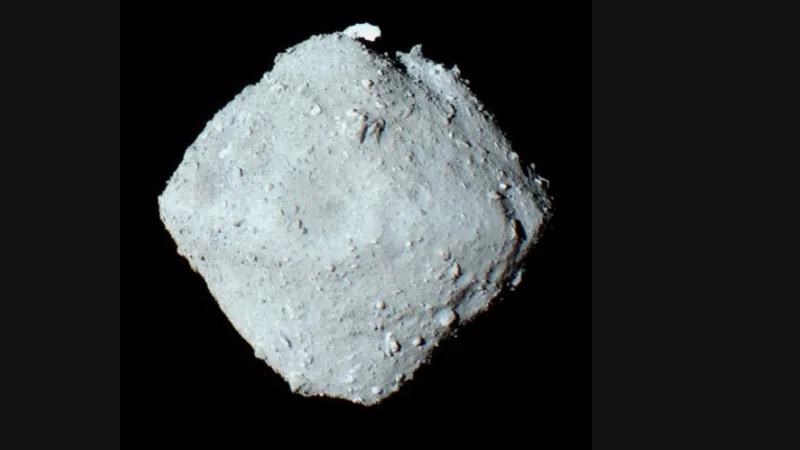
Shocking Discovery: Asteroid Ryugu Once Had Flowing Water Inside!
2025-09-16
Author: Yu
Unveiling Ryugu's Hidden Past
In a groundbreaking revelation, scientists in Japan have uncovered evidence suggesting that the near-Earth asteroid Ryugu once harbored flowing liquid water deep within its rocky core. This stunning discovery stems from samples returned to Earth five years ago by Japan's Hayabusa2 mission.
A Water-Infused Asteroid?
Known as 162173 Ryugu, this roughly 3,000-foot-wide asteroid orbits the sun every 474 days and frequently crosses paths with Earth. While it's classified as "potentially hazardous" by NASA due to its size and proximity, the risk of collision remains incredibly low.
Astounding Findings from Space Rock Samples
Analyzing the returned samples, researchers spotted unexpected chemical signatures that hinted at the past presence of flowing water. Lead author Tsuyoshi Iizuka from the University of Tokyo expressed astonishment, stating, "We found that Ryugu preserved a pristine record of water activity!" He went on to reveal that evidence suggests fluids moved through its rocks, transforming our understanding of this extraterrestrial body.
The Science Behind the Discovery
The breakthrough came when scientists examined radioactive isotopes of lutetium (Lu) and hafnium (Hf) within the samples. When analyzing the decay ratios of these isotopes, researchers uncovered an unexpected abundance of Hf-176, leading them to propose that ancient liquid water had leached away Lu-176, potentially not long after Ryugu formed.
What Caused the Flowing Water?
Iizuka theorized that a significant impact on Ryugu's larger parent asteroid may have fractured its surface, melting buried ice and allowing liquid water to circulate. Recent insights from the James Webb Space Telescope have even suggested that Ryugu's parent might share a lineage with the asteroid Bennu, visited by NASA’s OSIRIS-REx mission.
Implications for Earth's Water Origins
This research raises intriguing questions about Earth's beginnings. Traditionally, it's believed that water on Earth largely resulted from asteroid and comet impacts during the solar system’s infancy. However, these findings imply that asteroids like Ryugu may have delivered significantly more water than previously estimated—up to three times as much!
A New View on Water in Asteroids
The implications of this discovery stretch far beyond Ryugu. The researchers contend that its parent asteroid likely retained icy reservoirs for over a billion years, challenging prior assumptions about water retention in such bodies. Iizuka remarked, "This changes how we think about the long-term fate of water in asteroids." The water on these celestial rocks may have lasted longer than scientists formerly believed, opening up exciting new avenues of exploration in understanding the origins of water in our solar system.



 Brasil (PT)
Brasil (PT)
 Canada (EN)
Canada (EN)
 Chile (ES)
Chile (ES)
 Česko (CS)
Česko (CS)
 대한민국 (KO)
대한민국 (KO)
 España (ES)
España (ES)
 France (FR)
France (FR)
 Hong Kong (EN)
Hong Kong (EN)
 Italia (IT)
Italia (IT)
 日本 (JA)
日本 (JA)
 Magyarország (HU)
Magyarország (HU)
 Norge (NO)
Norge (NO)
 Polska (PL)
Polska (PL)
 Schweiz (DE)
Schweiz (DE)
 Singapore (EN)
Singapore (EN)
 Sverige (SV)
Sverige (SV)
 Suomi (FI)
Suomi (FI)
 Türkiye (TR)
Türkiye (TR)
 الإمارات العربية المتحدة (AR)
الإمارات العربية المتحدة (AR)